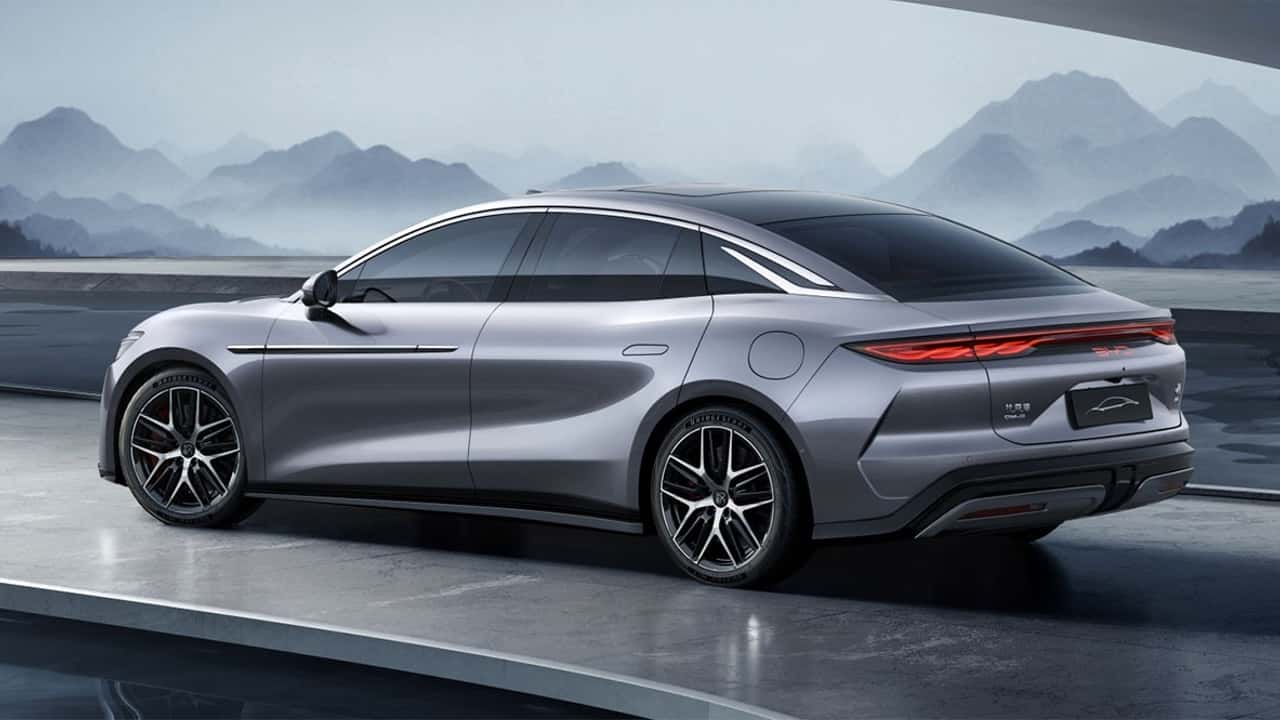Senator Elissa Slotkin pledges to “lie at the border to prevent Chinese vehicles from coming into the U.S.” However, this stance raises questions about whether it’s an issue of security or protectionism.
Currently, due to tariffs, only a small number of Chinese-manufactured vehicles are being sold in the United States. However, if Michigan’s new U.S. Senator gets her wish, this figure would drop even further to zero.
Senator Elissa Slotkin, a Democrat from Michigan, proposed a new bill this week with the intention of stopping Chinese-made cars from being sold in the United States. “I would personally lie down at the border to prevent Chinese vehicles from entering the U.S. market,” said Slotkin.
said in a statement
This is her inaugural bill as a Senator.
Called the Connected Vehicle National Security Review Act, it seeks to establish a “national security review process” for Chinese-made connected cars and parts manufactured by companies from China. This process would also intervene on Chinese cars made in other countries and imported here, such as Mexico.
Slotkin, who previously served as a CIA agent, stated that restricting or prohibiting the entry of Chinese vehicles falls under the category of “national security.”

BYD Han L
Vehicles from China have the potential to gather vast quantities of information about the U.S. and its citizens, presenting a considerable risk to our nation’s security,” Slotkin stated. “These Chinese cars, available at very low prices due to government support, might capture continuous video footage of critical locations, create detailed three-dimensional maps, and track the precise whereabouts of individual motorists—data that could all potentially be transmitted to authorities in Beijing.
However, she acknowledged that “Michigan’s automotive sector and automobile-related jobs” could be jeopardized if those vehicles were permitted to enter the U.S. market.
InsideEVs
has covered extensively
, owing to a mix of government investments, strong internal rivalry, reduced labor expenses, and a
years-long advantage in battery tech
China’s automotive manufacturers are generally regarded as being significantly more advanced than their counterparts in Western nations and other parts of Asia.
Although a Fox News anchor told Slotkin that many vehicles bearing American brands are manufactured in China, this statement isn’t accurate. In fact, just a few U.S.-bound models originate from China. These include the Buick Envision, the Lincoln Nautilus, the Polestar 2, and the recently introduced Volvo EX30. Notably, both the Polestar 2 and the Volvo EX30 have experienced rising costs along with various entry hurdles.
existing
and
renewed
anti-China tariffs; Polestar is
mostly discontinuing the Polestar 2
in support of alternative models not manufactured in China, with Volvo being planned to
shift the manufacturing of the EX30 to Europe
at a later date.
Although Chinese car manufacturers have successfully entered European, African, Latin American, and various other markets, they haven’t managed to break into the U.S. market so far. Nonetheless, under President Donald Trump’s tariff adjustments reshaping international trade dynamics, companies such as BYD may now face new opportunities for entry.
might have the potential to expand their worldwide market presence
As ex-U.S. allies pivot towards new partnerships.
Slotkin is far from being the first politician to voice “national security” concerns regarding Chinese-made vehicles, particularly those featuring LiDAR technology, radar systems, and mapping software. This issue predates Trump; his predecessor, President Joe Biden, also addressed these worries.
used that as an excuse
for anti-China tariffs of his own last year. The U.S. government has taken similar actions in the past against companies like TikTok and Huawei. But whether Chinese connected cars are an actual security threat, or merely a theoretical one, remains to be seen.
Last year, the Biden administration suggested limitations on connected-vehicle technology and components produced by China and Russia. With these measures along with Slotkin’s proposal and Trump’s additional tariffs, it might take some time for companies like BYD and others to make their way onto American roadways.
Contact the author:
[email protected]
More China EV News
- Why Isn’t America Using BYD’s 5-Minute Electric Vehicle Charging Technology Yet?
- Could China’s BYD Be the True Victor in the Tariff Disputes?
- China’s Largest Battery Producer Might Acquire Nio’s Battery Swap System
- CATL and Nio Team Up to Establish Uniform Battery Swap Standards
- China’s DeepSeek AI Has Astonished America. The Electric Vehicle Competition Is Similarly Impressive.
- China’s Dominance in the EV Market: Why They Are Leading the Electric Revolution